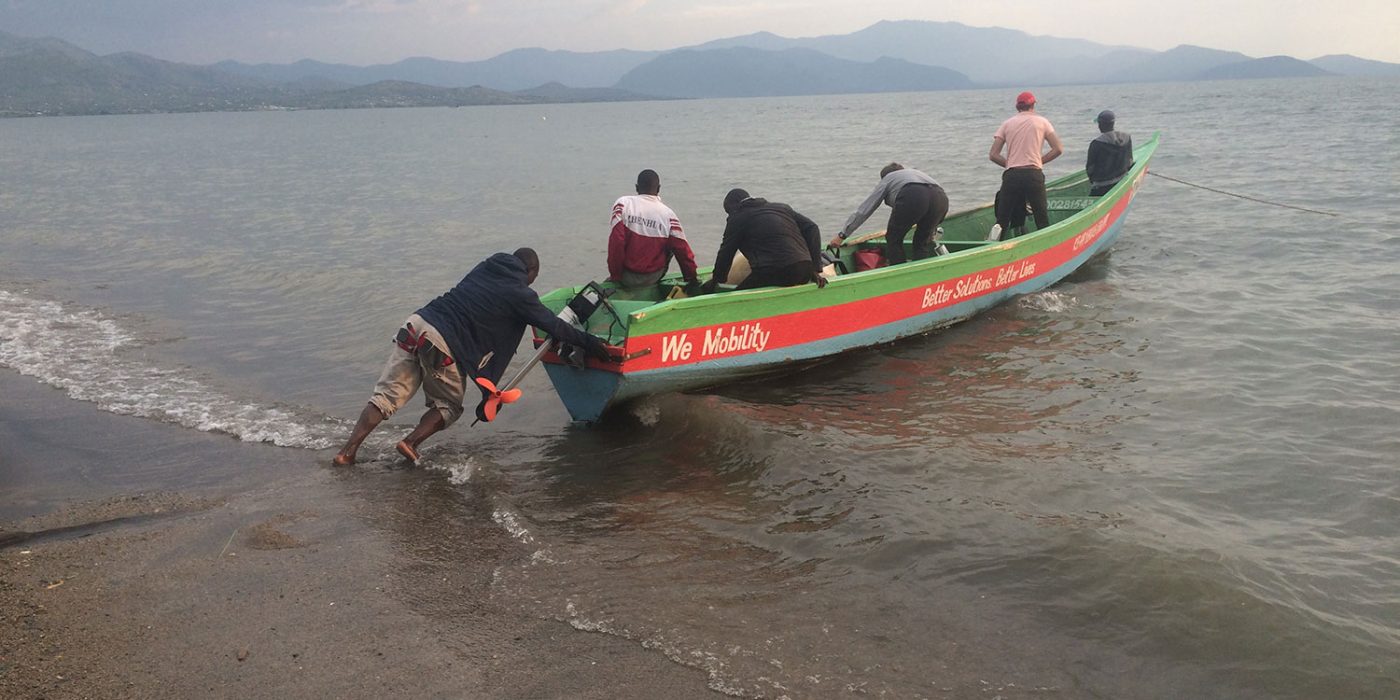Kenyan startup rents electric motors to fishermen
In the Kenyan fishing village of Mbita, the start-up Asobo lends Torqeedo electric motors to local fishermen for a monthly fee. Included are financial advice, training, maintenance and a battery charging service with solar energy.
Asobo’s goal is to massively reduce the negative impact of fuel emissions on Lake Victoria in East Africa, the world’s second largest freshwater lake. This is because the lake’s ecosystem is threatened: “[…] with 76% of the fish species threatened by extinction. The livelihoods of 30-50 million people who, directly or indirectly, are dependent on the lake are also acutely threatened,” Torqeedo writes on their blog. One reason for the alarming situation is that the lake has been overfished for decades. Another is the enormous scale of pollution. The fishermen with their 30,000 boats also contribute to this problem.
Asobo was founded in 2019 by the Dutchman Laurens Friso and the German Wolfgang Gregor together with the venture builder Persistent Energy and is based in the Kenyan town of Mbita with 6,000 inhabitants. The startup company started business operations in February 2020. The initiators want to convince as many fishermen as possible to switch to a high-tech electric drive from Torqeedo. To this end, Asobo is purchasing units of the Cruise 4.0 T, whose propulsive power corresponds to that of an 8 HP outboard motor and leasing them to the people fishing on Lake Victoria.
Asobo is also training the fishermen to use the new electric drive efficiently, charging the Torqeedo Power 24-3500 batteries with 3.5 kWh and offering a backup service. In order to motivate the fishermen to switch, the company also uses economic arguments: The rent for an electric motor is between 20 and 25 per cent below the cost of a gasoline outboard motor per month. “Everywhere around the world, people like saving money, but in low-income countries like Kenya it is even more important,” says Laurens Friso. The actual amount of the monthly rent depends on the boat, the route and the current fuel prices.
Asobo counts being able to supply up 500 fishermen from Mbita “in the near future.” Further renting and charging stations around the lake are to follow. In the long term, this model should be able to branch out on other continents. “I hope that in a few years our business model will not just be working on Lake Victoria but in emerging markets all over the world,” says Friso. “For example, in island-rich South-East Asian countries like Indonesia or the Philippines.”
Gregor Papadopoulos, Torqeedo’s sales manager who is involved in the project, adds that the goal is to have several thousand electric outboards on Lake Victoria in a few years. “I’m assuming that by 2040 there won’t be a single petrol-powered motor on Lake Victoria.” Torqeedo has already received inquiries from business people in Uganda and Senegal who are interested in the project. Currently, the manufacturer is already equipping fishermen on the Cape Verde Islands and in South America with fully electric motors.
With reporting by Cora Werwitzke, France.





5 Comments